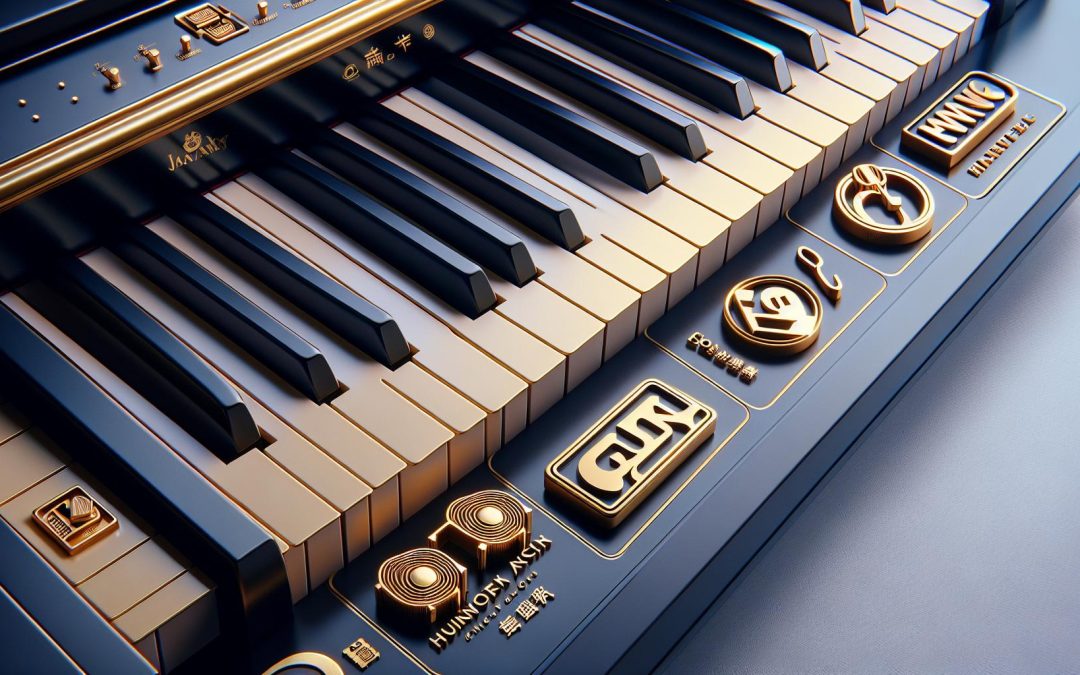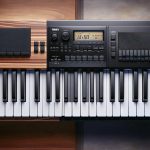If you're a music enthusiast seeking the perfect piano keyboard, you've likely heard about hammer action keys. They're the secret to getting that authentic piano feel, mimicking the resistance and rebound of traditional piano keys. But with so many options out there, it's hard to know where to start.
That's where this guide comes in. It'll help you navigate the sea of hammer action keyboards, pointing out the top picks. Whether you're a beginner or a seasoned pro, you'll find the perfect fit for your needs and budget. So, sit back and let's dive into the world of hammer action keyboards.
What are hammer action keys?
Push any key on a traditional, acoustic piano, and here's what'll happen: the key raises a hammer, which then strikes the string. The weight and response of this hammer action are what gives a piano its characteristic touch or feel. When talking about piano keyboards, hammer action keys attempt to replicate this mechanical process as closely as possible.
Let's look at the mechanics. In a hammer-action keyboard, each key is attached to a weight. When the key gets pressed down, it raises this weight (just like the hammer in an acoustic piano), and when released, the weight falls back into place. That gives the sensation of weight and momentum, nearly imitating the feel of playing a traditional piano.
You're probably wondering, "But why does this matter?"
Well, if you're a beginner, a keyboard with hammer action keys provides that authentic piano feel, which might make the transition to an acoustic piano smoother down the road. And if you're an experienced player, there's no dismissing the tactile satisfaction of weighted keys. It adds depth and nuance to your playing and allows for expressive performances.
Note: Not all keyboards are created equal, and neither are all hammer action keys.
Many manufacturers come up with their unique designs and technologies for hammer action keyboards. They will differ in terms of touch sensitivity, response, and even weight distribution across the keys (traditional pianos have heavier keys in the low end and lighter keys on the high end).
So there's a lot to consider when choosing a hammer action keyboard. Rest easy, we'll delve deeper into these factors and guide you through the world of hammer action keyboards, steering you toward the best option for your musical needs.
Benefits of hammer action keys
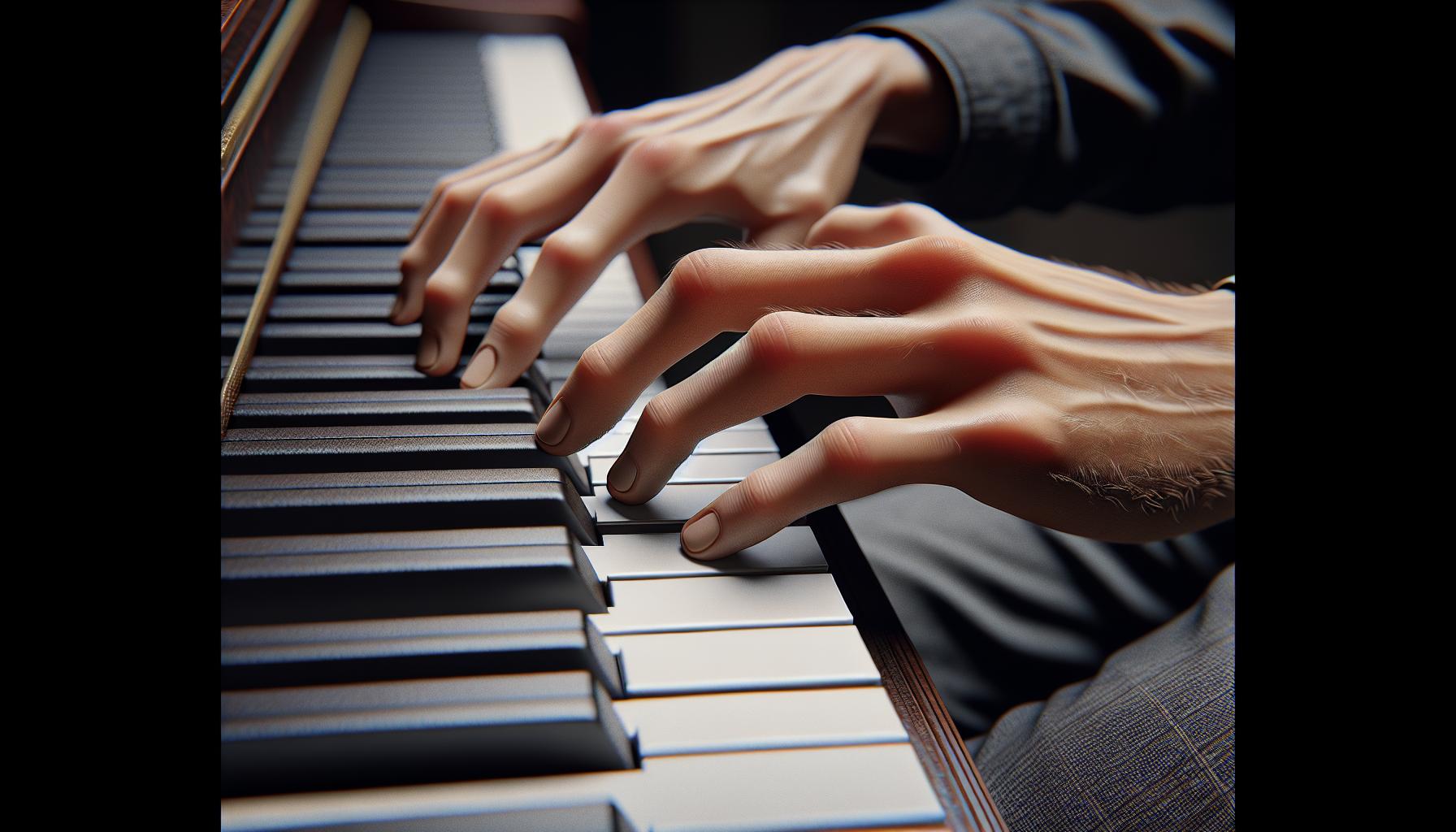
For both novice and seasoned musicians, hammer action keys on a piano keyboard offer multiple benefits. Designed to mimic the mechanical operation of an acoustic piano, these keys provide an authentic piano experience that's comfortable for beginners and familiar to experienced players.
First off, this system provides important feedback to the player. When pressing a hammer action key, the resistance felt is very much like that of an acoustic piano. Players can sense when the note has been played. This tactile response can significantly improve finger strength and overall keyboard technique. This makes it perfect for musicians aiming to transition from electronic to traditional piano play.
Secondly, due to the graded weight system implemented in hammer action keys, each key's resistance varies from low to high notes. The keys highlighted in lower octaves are typically heavier and become gradually lighter as a player moves toward the higher octaves. This replicates the feel of an acoustic piano, providing an innate sense of organic playability that's almost impossible to achieve with non-weighted keyboards.
One key factor to remember here is not all hammer action keyboards are created equal. Manufacturers often have unique designs and technologies for their hammer action keys. It's not a "one size fits all". So, when it comes to choosing a hammer action keyboard, understanding personal preferences and the main objective plays a significant role.
In the next section of this article, we'll delve deeper into the key factors and parameters that one needs to consider when selecting the right hammer action keyboard. These factors may range from the keyboard's overall construction and design to the specific characteristics of the hammer action mechanism itself.
Factors to consider when choosing a piano keyboard with hammer action keys
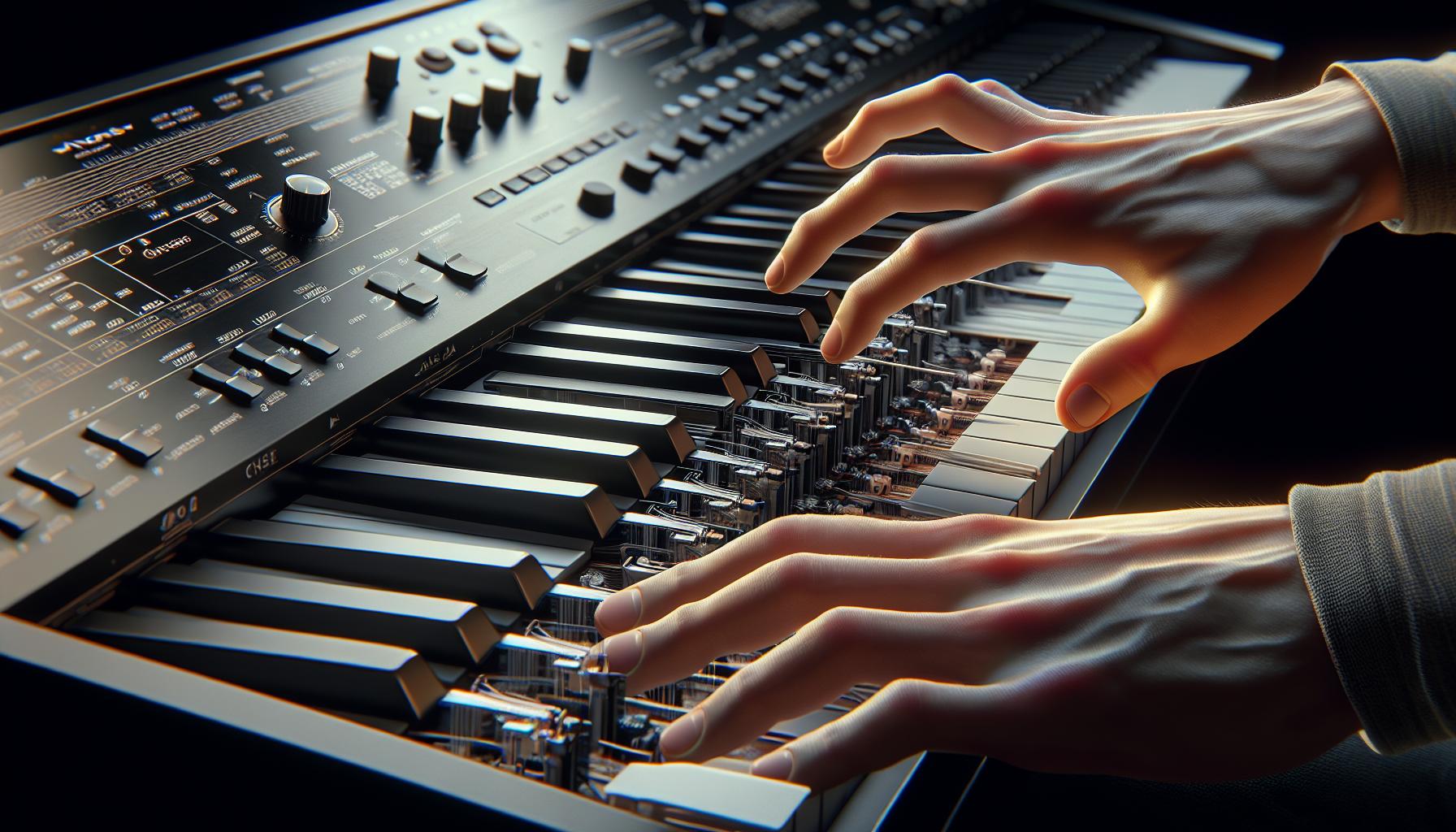
When venturing into the territory of hammer action keyboards, there are a few important factors to consider. They'll not only determine the quality of the keyboard but also how well it matches your style of play and feel preference.
Feel and Responsiveness:
The general *feel* of the keyboard should be your foremost consideration. No doubt, it's about how authentic the keyboard feels to a real acoustic piano. Superb hammer action keyboards mimic the mechanical operation accurately, providing a seamless transition between digital and acoustic experiences. There's the tactile feedback to think about as this can greatly improve finger strength and keyboard technique.
Graded Weight System:
One notable property of high-quality hammer action keyboards is the *graded weighting system*. This incorporates a resistance that varies between low and high notes. This replicates the feel of an acoustic piano where lower notes require more force to play than the higher ones. Always test this factor out when making the selection.
Manufacturer’s Design and Technology:
Each keyboard manufacturer has their own unique designs and technologies. Brands differ and so do the qualities of their keys. Some favor a more synthetic, light feel while others go for heavier, more realistic keys that are also significantly louder.
Additional Features and Needs:
Apart from the primary consideration of the keys itself, look at the additional features the keyboard offers. Does it have a built-in speaker system, or MIDI capabilities to record your playing? Perks like these often separate the good keyboards from the best.
Ultimately, it's essential to sample a few different keyboards before making a decision. This way, you can see what feels and sounds best to you. As you do, keep the following factors in mind: feel and responsiveness, graded weight system, manufacturer’s design and technology, and finally, additional features. Remember, the best keyboard is one that feels right to you and suits your individual needs.
Top picks for piano keyboards with hammer action keys
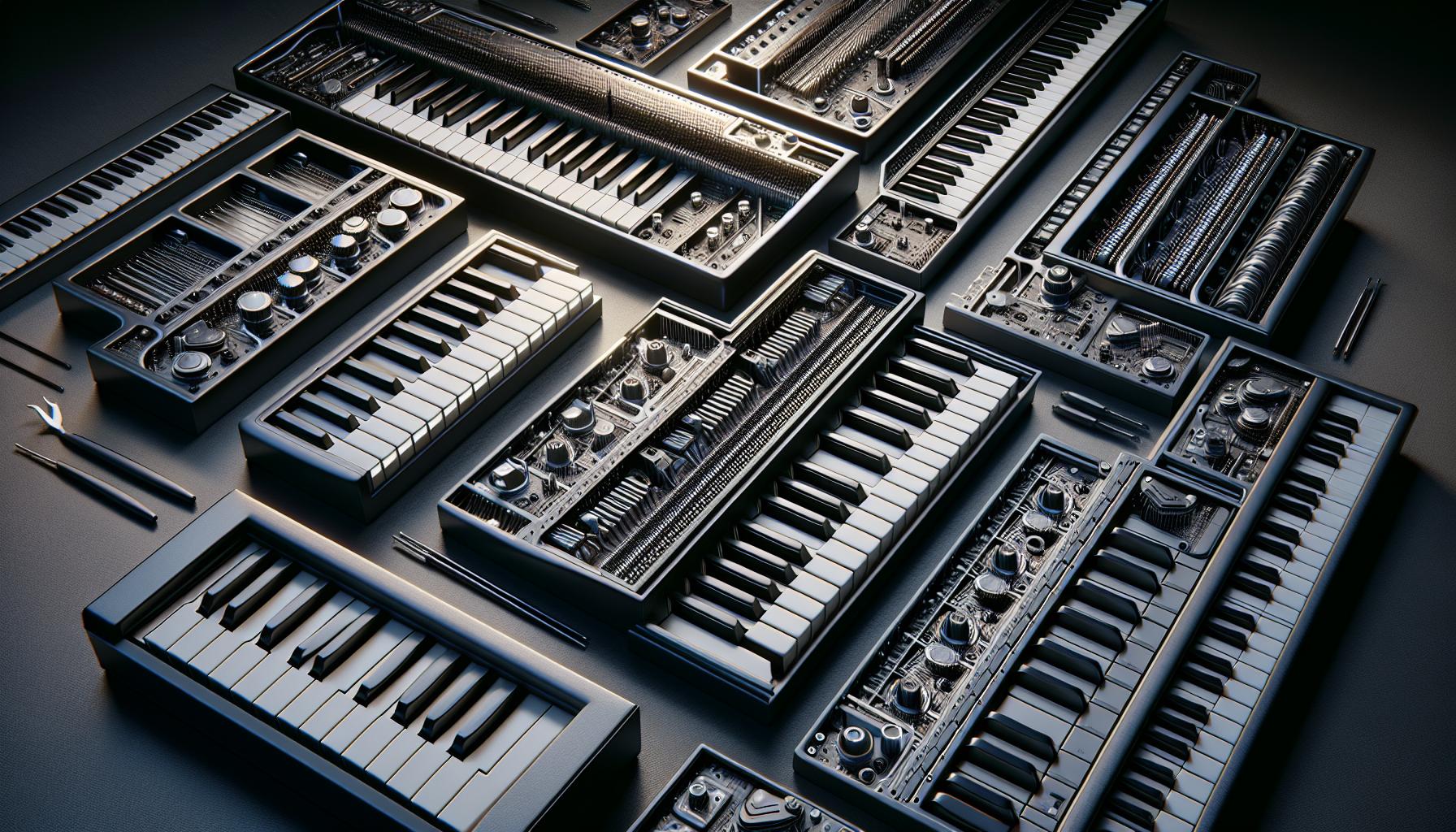
When it comes to top picks for piano keyboards with hammer action keys, several stand out. These models are renowned not only for their exceptional feel and responsiveness but also for the realistic replication of an acoustic piano sensation.
A top-notch choice is Yamaha's P-115 model. It's widely considered for its GHS (Graded Hammer Standard) keyboard, which is designed to enhance the natural playing experience. Yamaha has carefully calibrated each key, so the lower keys bear more weight just like an acoustic piano. Its ability to interact with iOS applications add to the engaging experience it offers.
Next on the list is the Casio Privia PX-160 which is well-known for its remarkable Tri-Sensor Scaled Hammer Action II keyboard. This technology allows for an impressive level of detail when it comes to responsiveness and recreating the nuances of delicate piano playing. Further, it boasts its unique features like split and layer capability, plus it's equipped with a host of high-quality tones.
The Roland FP-30 claims a spot as one of the best piano keyboards with hammer action keys as well. Its innovative PHA-4 (Progressive Hammer Action) offers high resolution, expressiveness, and great playability. A step above, it makes use of Roland's SuperNATURAL Piano sound engine providing a rich, authentic sound that flows naturally with your playing.
Additionally, Korg's B1SP is a worthy mention. Korg has implemented a Natural Weighted Hammer Action (NH) keyboard in this model, replicating the heavier touch in the low keys and lighter touch in the high keys. Additionally, the B1SP is equipped with built-in speakers and comes with a dedicated stand and pedal board.
These top picks represent the best in class for hammer action keys, each offering unique features that set them apart. Whether it's the feel, responsiveness, or the additional features, these keyboards are the epitome of what to expect when choosing a piano keyboard with hammer action keys.
Conclusion
So there you have it! The Yamaha P-115, Casio Privia PX-160, Roland FP-30, and Korg B1SP have proven to be top-notch when it comes to piano keyboards with hammer action keys. They've each got their own unique features that make them stand out in the crowd. But what they all have in common is their ability to mimic the feel and responsiveness of an acoustic piano. Whether you're a seasoned pro or just starting out, there's something in this lineup for everyone. These keyboards truly represent the cream of the crop for hammer action keys. So go ahead and make your pick. You won't be disappointed!
Harlan Kilstein began playing piano during covid with no piano background at all. He taught himself how to play learning what to do and what not to do.
Today he's an advanced intermediate player and can help you grow in your skills because he learned all this on his own.

